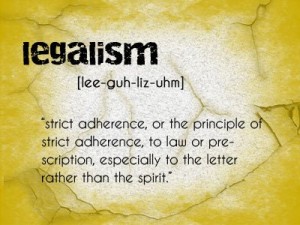(#AmazonAdLink)  I interviewed Lucas Kitchen today about his book (#AmazonAdLink) Naked Grace. In this book, he tells the story of how he discovered the truth about grace, and why it is so important for you and I to learn these truths as well. If you have questions about eternal life, the message of the gospel, what it means to follow Jesus as a disciple, or how grace helps us defeat sin in our lives, listen to this interview.
I interviewed Lucas Kitchen today about his book (#AmazonAdLink) Naked Grace. In this book, he tells the story of how he discovered the truth about grace, and why it is so important for you and I to learn these truths as well. If you have questions about eternal life, the message of the gospel, what it means to follow Jesus as a disciple, or how grace helps us defeat sin in our lives, listen to this interview.
Also, make sure you get a copy of Lucas’ new book, (#AmazonAdLink) Naked Grace. And while you’re at it, get his other books on gospel-related issues, such as:
- (#AmazonAdLink) Salvation and Discipleship: Is There a Difference?
- (#AmazonAdLink) Eternal Rewards: It Will Pay to Obey
- (#AmazonAdLink) Eternal Life: Believe to be Alive
- (#AmazonAdLink) Thomas: Hero of the Faith
 In this interview with Lucas Kitchen, we discuss questions like this:
In this interview with Lucas Kitchen, we discuss questions like this:
- When did you first come to start asking questions of eternal significance?
- How did you first come to understand the truth about Grace?
- How does a proper understanding of how to receive eternal life help you in life and ministry?
- Is free grace a license to sin, or does it actually help us get rid of sin?
As you listen to this podcast, you will discover that there are many similarities between your own story and that of Lucas. Make sure you listen to the end where he tells you how to reach out to him and find more answers to your questions.
Also, go visit his websites to connect with Lucas:




 Just as legalism breeds disunity, love and unity flourish where grace and faith multiply. The more we emphasize grace and faith, the greater our unity will be. For this reason—and simply for the sake of the truth—a strong stance on the simplicity and freeness of eternal life by grace alone through faith alone is essential.
Just as legalism breeds disunity, love and unity flourish where grace and faith multiply. The more we emphasize grace and faith, the greater our unity will be. For this reason—and simply for the sake of the truth—a strong stance on the simplicity and freeness of eternal life by grace alone through faith alone is essential. At it’s core, legalism believes that God is angry with humanity, and that the way to make God like us again is to obey His laws. And if everybody could just obey God’s laws all at the same time, then God might love us and be happy with us again, and blessings from heaven will flow down upon us once more.
At it’s core, legalism believes that God is angry with humanity, and that the way to make God like us again is to obey His laws. And if everybody could just obey God’s laws all at the same time, then God might love us and be happy with us again, and blessings from heaven will flow down upon us once more. Since nobody believes that they are legalistic, everybody believes they have a healthy balance between law and grace, between faith and good works. A legalist then, is anyone who places a greater emphasis on law and good works than you do. On the opposite end of the spectrum, we criticize those who take grace too far. Those people are licentious, we think. They place too much emphasis on grace and in so doing, give people license to sin.
Since nobody believes that they are legalistic, everybody believes they have a healthy balance between law and grace, between faith and good works. A legalist then, is anyone who places a greater emphasis on law and good works than you do. On the opposite end of the spectrum, we criticize those who take grace too far. Those people are licentious, we think. They place too much emphasis on grace and in so doing, give people license to sin. How? Most people try to combat legalism with a different form of legalism. I have seen arguments break out between a behavioral legalist and a doctrinal legalist. The first person thinks we make God happy by what we do, while the second person argues that we make God happy by what we believe.
How? Most people try to combat legalism with a different form of legalism. I have seen arguments break out between a behavioral legalist and a doctrinal legalist. The first person thinks we make God happy by what we do, while the second person argues that we make God happy by what we believe.
 But this is the same thing as saying that good works are a necessary condition for entering heaven.
But this is the same thing as saying that good works are a necessary condition for entering heaven.



 This is why the free offer of eternal life is a problem for most people.
This is why the free offer of eternal life is a problem for most people. No ifs, ands, or buts.
No ifs, ands, or buts.
 It’s true what they say: all religions are the same.
It’s true what they say: all religions are the same. Well, I will tell you one thing that doesn’t separate us…. good works. You sometimes hear Christians say, “We are more generous, loving, kind, and forgiving.” That’s crap.
Well, I will tell you one thing that doesn’t separate us…. good works. You sometimes hear Christians say, “We are more generous, loving, kind, and forgiving.” That’s crap.